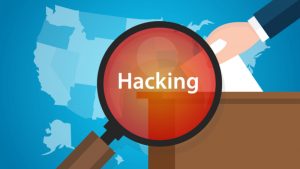Over the next 20 years, cities around the world will invest roughly $41 trillion to upgrade their infrastructure to benefit from the Internet of Things (IoT), according to the Smart America Challenge forecast. However, money doesn’t grow on trees and not all smart city projects have the same RoI–so cities need to make sure they invest wisely.
New York City Mayor Bill de Blasio is setting his sights on cybersecurity this spring. His office recently launched NYC Secure, a cybersecurity initiative aimed at protecting New Yorkers online.
AT&T and the First Responder Network Authority recently announced the launch of the FirstNet network core. With the launch, first responders now have nationwide access to a specialized communications system designed to meet their unique needs.
Last week, the National Institute of Standards and Technology (NIST) revealed the initial public draft of its Special Publication 800-160 Volume 2, Systems Security Engineering: Cyber Resiliency Considerations for the Engineering of Trustworthy Secure Systems.
Most government IT managers grasp the concept of automation, the use of technology to perform a process or procedure without human assistance. However, do they really understand the role of automation, and how it can be applied to accelerate delivery and management of IT resources and applications, especially in this era of multi-clouds?
The Department of Homeland Security’s (DHS) rare public alert last week about a large-scale Russian cyber campaign targeting U.S. infrastructure raised a piercing alarm about vulnerabilities in the nation’s power grid, and underscored what officials have meant when talking about the need for a whole-of-government and whole-of-nation approach to cyber defense.
The Senate Subcommittee on Communications, Technology, Innovation, and the Internet took a deep dive look at the future of broadband in the United States during a hearing on Tuesday.
In times of emergency, state governors have regularly called in the National Guard, for reasons such as assisting the recovery after natural disasters like Hurricane Katrina in 2005 or to suppress protests in Ferguson, Mo., in 2014. If voting systems are under siege, should they do the same?
Reports surfaced five years ago that the Kremlin had started buying typewriters to avoid computer leaks. Suffice to say, it’s a complicated cyber world out there today–from nation states to cyber criminals to organized crime to 400lbs guys in their bedrooms in New Jersey. And, in this dynamic environment, the only thing we know for sure is that the way we’ve done things before won’t protect us anymore. Trustwave Government Solutions is debuting its new Threat Hunting service for forward-leaning government agencies that are tired of having their cyber clocks cleaned.
About five years ago, many law enforcement officials wondered if the cloud was safe enough to hold their data. Now the FBI, the nation’s top law enforcement agency, is considering a move to a large-scale, commercial software cloud provider.













